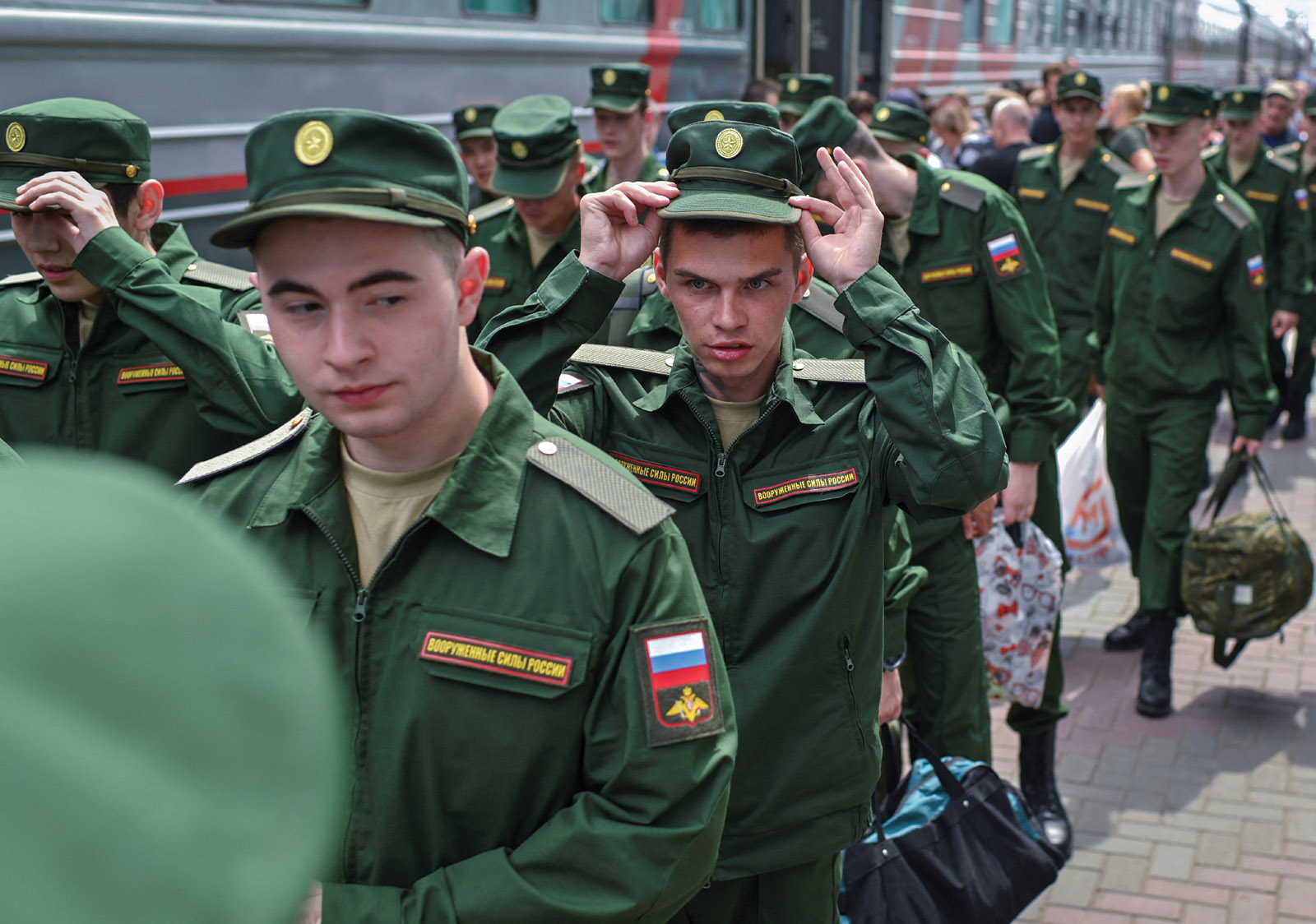Fred Kaplan

The most stunning geopolitical surprise of the past year is how poorly the Russian military has been fighting in Ukraine. When Vladimir Putin ordered the invasion in February 2022, everyone—including the US intelligence analysts who had predicted it—assumed that Volodymyr Zelensky’s government in Kyiv would fall within a few weeks or even days and be replaced by a Moscow-bred puppet regime. Some anticipated that a long insurgency war might then follow, but no one was impetuous enough to guess that nearly a year later the Ukrainians would be not only fighting the Russians to a standstill but pushing them back on nearly every front.
Has the Ukrainian army turned out to be much better than imagined, or has the Russian army turned out to be a lot worse, or both? In Putin’s Wars, Mark Galeotti, a British scholar and journalist highly regarded by experts on Russian military matters, attributes the unexpected battlefield outcome to Russian weaknesses as well as Ukrainian strengths (greatly abetted by NATO weapons and American intelligence resources), but he lays out a persuasive, detailed case that Russia’s deficiencies are more severe and more deeply rooted than many Western officials and pundits had detected.
Galeotti notes that Moscow overloads its army with weapons but allots too little money and attention to the mundane stuff of logistics—spare parts, food, water, and the trucks to transport them—thus leaving supply lines vulnerable and making offensive operations unsustainable. Junior officers receive rote training, so they’re unprepared to take the initiative—a deliberate policy to keep them from rebelling against senior officers, though as a consequence, campaigns can plunge into chaos if they don’t go as planned. Combine all this with widespread hazing of enlisted men, ramshackle barracks, poor nutrition, and low pay, and it should have been foreseeable that while today’s Russian soldiers might be roused to defend the motherland, they’re lackluster at invading other countries.
Up to a week before the invasion, I was predicting that for all these reasons Putin would not go through with it. I thought he might send in troops to occupy Ukraine’s eastern Donbas region, a slice of which Russian Special Operations Forces and Moscow-backed separatist militias already controlled, but trying to conquer all of Ukraine—next to Russia itself, the largest country in the former Soviet Union, with a population of 40 million people—seemed a losing proposition. My military analysis, it turned out, was spot-on; I went wrong in overestimating Putin’s rationality.
Galeotti dissects the many ways that Putin miscalculated his military’s strength. When the Soviet Union imploded in 1991, so did its armed forces, as a result of which the new Russian state “initially had no army as such.” By the time Putin succeeded Boris Yeltsin in 2000, the military—still suffering from post–cold war torpor, like the country as a whole—was “scarcely functional.” Over the next decade and a half, through an enormous infusion of money (facilitated by higher oil prices) and spurts of creative reorganization, commanders (most of them recruited or promoted from outside the normal chain of succession) transformed it into a fighting force “capable of waging and winning a whole range of conflicts”—an impressive feat. But the range of wars that the Russian military waged and won was narrow. None of them involved the tactical complexities or fierce resistance that it met in Ukraine; and, even so, its victories were harder to pull off than they should have been.
No comments:
Post a Comment